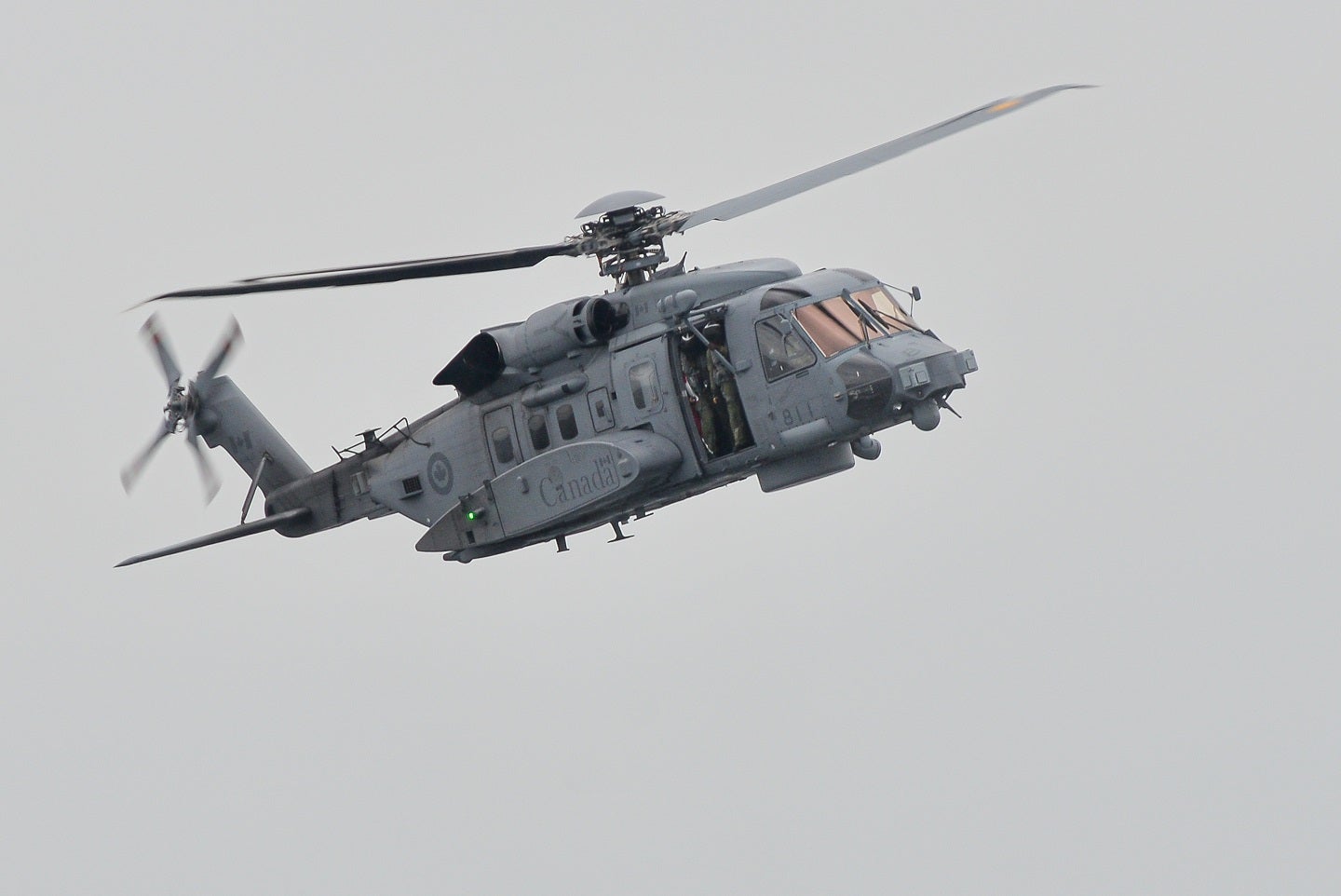
The Canadian Armed Forces have expressed concerns about the unsafe interception of a Royal Canadian Air Force (RCAF) helicopter while conducting routine exercises in the South China Sea.
The incident, which occurred during a deployment in support of Canada’s Indo-Pacific Strategy, involved two People’s Liberation Army J-11 fighter jets. While initial encounters were safe, subsequent actions by the Chinese jets raised safety concerns, prompting the Canadian military to call for professionalism and safety in air intercepts.
In a statement released on 3 November 2023, the Canadian Armed Forces highlighted an incident involving one of its CH-148 Cyclone helicopters aboard the HMCS Ottawa. The helicopter was conducting routine exercises in the South China Sea, a mission vital to Canada’s Indo-Pacific Strategy. The initial encounter was relatively benign and followed established safety protocols.
However, the situation escalated during two subsequent interceptions. In the first case, one of the Chinese fighter jets conducted a dangerously close pass over the CH-148 Cyclone helicopter, creating turbulence and forcing the aircraft to take evasive actions.
Later the same day, during a second sortie, another J-11 fighter aircraft intercepted the helicopter and launched flares directly in its path. The helicopter pilot had to manoeuvre to avoid the flares, minimizing the risk of ingestion into the helicopter’s rotor and intake. Both of these encounters were categorized as unsafe by the Canadian Armed Forces.
Canada also has Pacific territory and thus looks towards the Indo-Pacific for its strategic orientation in a way that many of its NATO allies do not. In this region, China’s rapidly growing power and influence may present a challenge to Canadian interests, according to GlobalData’s “Canada Defense Market 2023-2028” report.
The Canadian Armed Forces consider an intercepting aircraft’s actions unsafe when they place their aircraft or crew in jeopardy, leading to manoeuvres to avoid a collision. It is worth emphasizing that these interactions occurred in international airspace well beyond any territorial boundaries claimed by any nation.
Despite the nature of the encounters, all members of the air detachment and crew on HMCS Ottawa emerged unscathed, and the helicopter remained undamaged. The mission, aimed at contributing to a more secure and stable Indo-Pacific region, is set to continue.
The US Navy’s Arleigh Burke-class destroyer USS Rafael Peralta (DDG 115) and the Royal Canadian Navy’s Halifax-class frigate HMCS Ottawa (FFH 341) recently conducted a routine transit through the Taiwan Strait.
Canada emphasizes its expectation that any intercepts of its aircraft be conducted in a manner that prioritizes the safety of all involved parties.
The incident serves as a reminder of the challenges nations face as they seek to assert their interests and maintain security in an increasingly contested region.
Another recent incident unfolded over the South China Sea as a Chinese J-11 pilot executed an intercept of a US Air Force B-52, raising international tensions and highlighting growing concerns over airspace safety.




